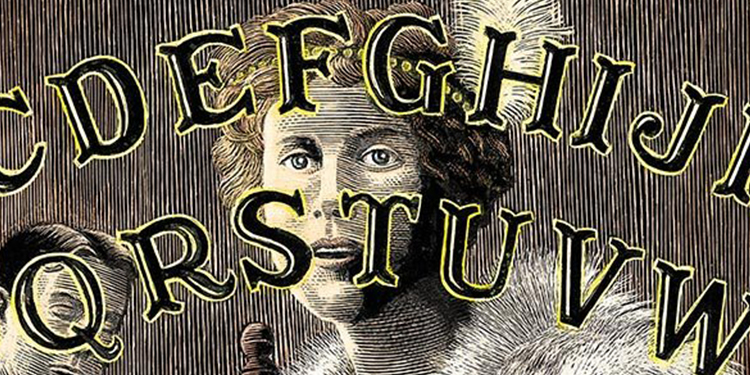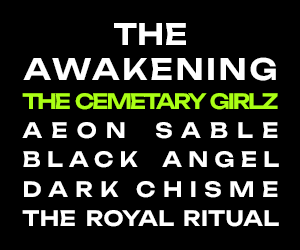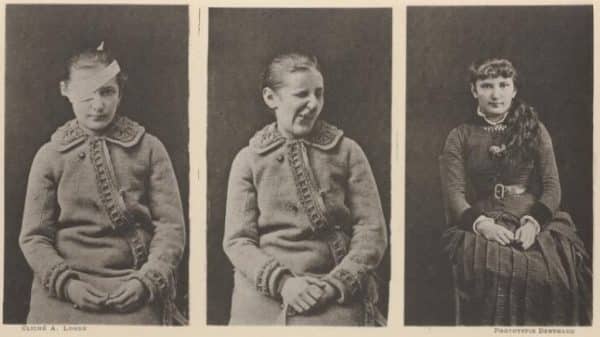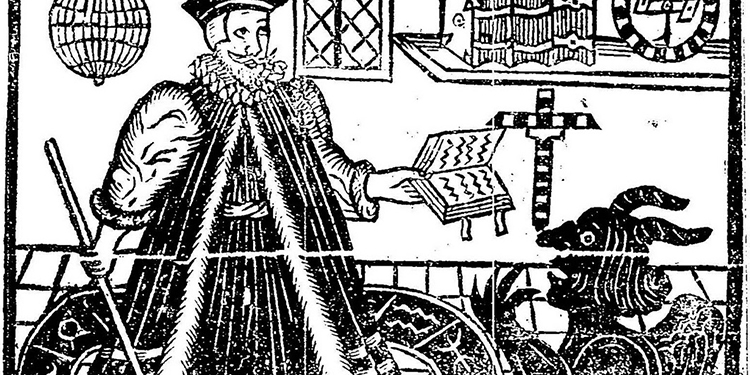Recently, I did a reading for a man who tried to convince me to become a psychiatrist
“Listen, you can put in the work, become the establishment, and help kids that grew up like you,” he said. “You can make a lot of money, I know a psychologist that’s also low-key an occultist, he helps kids with mental illnesses as well as psychic kids.”
I told him that that wasn’t my specific path; I already held a lot of resentment for the limitations of traditional psychology, as I had been tested extensively when I was younger to no avail.
However, what he had said about the psychologist he knew that helped psychic children stuck with me. I made this comic the day after Thanksgiving.
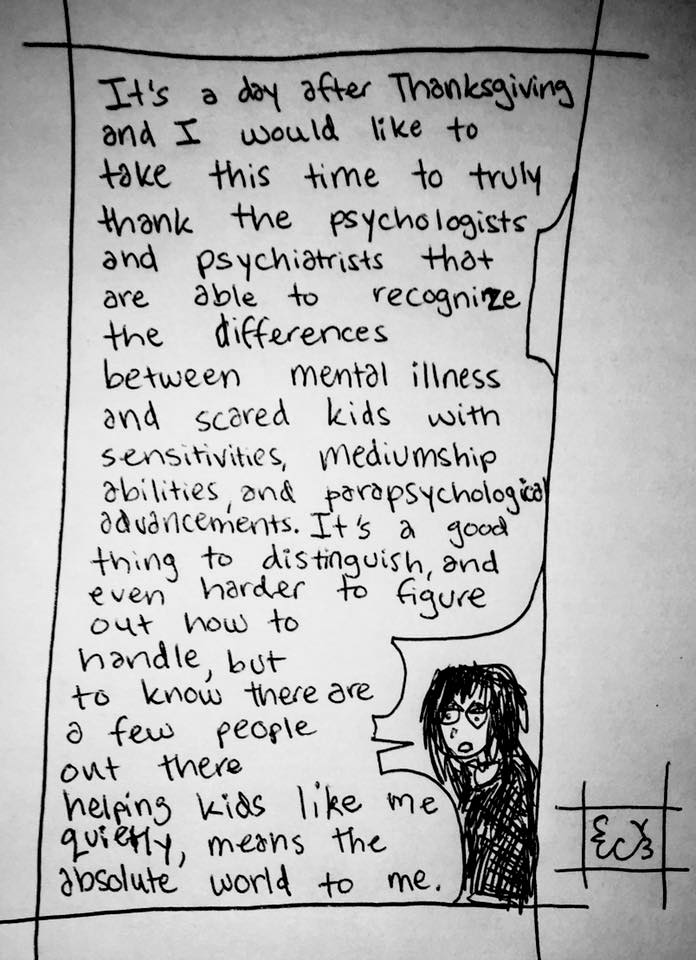
The man who I had had the previous conversation with showed it to his friend, the psychologist/occultist. The man responded to the comic, and I asked him if he would be interested in me interviewing him anonymously, as not to affect his work or reputation, but instead to start a conversation about psychics in the modern-day healthcare ring. He agreed.
This is a transcription of our interaction, and if you needed incentive to read further, we discuss entities, shamans in modern society and his witnessing of telekinesis in a professional setting. He will be called “A, ”for “anonymous.”
Would you mind starting by sharing your credentials/telling me what you do exactly?
A: I’m a Pre-Doctoral Clinical Psychology Intern at a mental health clinic on the East Coast. I have earned an M.A in clinical psychology, and am working for a Psy.D. (Doctor of Psychology) in clinical psychology, which I hope to achieve at the end of this year. I work under several doctoral level licensed psychologists. I am not yet a “psychologist,” because this is a protected title. I provide therapy, and psychological testing, for a wide variety of clients.
Perfect, and what insight have you acquired through your job connecting psychology to metaphysics or the occult? Most occultists are familiar with how closely related psychology and “magic” can be, but perhaps you can elaborate based on your field observations.
A: In my humble opinion, a good starting point is looking at diversity and difference. In other words: different ways of being in the world. Western Esoteric, and New Age, paradigms of thought are expressions of culture. From the perspective of clinical work, it is important to honor cultural expression and recognize the limitations that the clinician has regards the impetus of the cultural expression. Which is especially key regards talk of the occult/metaphysics, etc, because metaphysical and occult practices occur in a laboratory that is very different than the therapy office or the testing center.
That’s true. Have you ever had clients that you recognized to be experiencing symptoms or narratives that were more aligned with the paranormal than is publicly recognized within clinical psychology, though? It’s incredibly often that people with sensitivities can get misdiagnosed or misunderstood while they’re sitting in the therapy chair or testing room.
A: I think a key part of the question, as I hear it, is about the limitations of clinical psychology. And this is where I want to make sure that I emphasize that, sadly, the practice of clinical psychology does not always concur with its own code of ethics as defined by the American Psychological Association (APA). Specifically, it is important to understand the limits of one’s personal ability to serve a population, and a population of persons who participate in paranormal experiences is different from the normal population. Some psychologists are aware that there are differences to look for, and some are not.
Have you, personally, had any chances to recognize differences and help any people with sensitivities that you’ve come into contact with? I’m aware you’re under oath to not discuss what goes on in your appointment rooms, so feel free to be as vague as you feel necessary.
Also, are psychologists allowed to direct patients to unorthodox sources of information, such as provide suggestions geared towards helping Empaths or Mediums? Or is that taboo, for fear of reputation tarnishment?
A: Yes. With a but: I would like to be clear that, from where I am sitting, I do not know what other people are experiencing. I only know what is being said to me, and can participate in that dialogue. There is no regulation regards connecting people with “unorthodox sources of information.” I would expect that many people would find being directed to alternate places where people think similarly to be therapeutic. One of the challenges is that many people who aspire to be, and become, psychologists, are more traditional thinkers than most pagan/occult/metaphysical people.
That’s true, please proceed with your “but” taken into account.
A: I have seen people who are aware of the same archetypes, and energies, angels, that I am seeing. One client mentioned that they were communicating with a specific angel that I was also communicating with, and that they had a message for me from that angel. This type of communication demands a deep reflection upon the work and responsibility that must be maintained in order to ensure that the therapy is able to benefit the client.
Ahhhhh, that must have been fascinating to receive in a client-therapist situation. That’s very loaded, because I’m sure you don’t like to disclose your endeavors as an occultist with your clients, and want to maintain that you’re there to help them, not the other way around, even if the message was legitimate and beneficial.
A: Yes, and also challenging. The idea of counter-transference springs to mind. And the idea of counter-transference is the basis of understanding self, as an object in the world. Being aware of multiple perspectives is important. Think of the Rorschach Inkblot test. What do you see? There are lots of ways to see the blots. Or paintings. They are really occult-inspired paintings, intended to elicit multiple viewpoints. Which I think goes along with the entire occult paradigm: seeing words, artistry, from multiple perspectives.
I got very lucky, apparently I was described too “lucid” and “self aware” to be schizophrenic, but there are also sensitive people out there that struggle with finding the differences between what’s paranormal and what’s delusion. What do you look for when you’re observing instances to see if it’s shared-reality communicative or an illness?
A: People that are “ill” tend to look like one another. The challenge is in recognizing how people who are having meaningful spiritual experiences are different. Imagine it: you are a very “normal” person, you go through education, with little exposure outside of normal privileged paradigms, and what happens? It is easy to pathologize people based upon a privileged norm.
That’s true. This might be a little off topic, but I’d like to get a perspective from someone with formal training as a psychologist: Have you ever noticed a link between derealization and the “trance state” often used by mediums?
A: Altered states of consciousness are very interesting to me. Derealization and mediumistic trance states are similar insofar as there is a degree of dissociation: to use a visual metaphor, the figure-ground becomes inverted. By turning oneself inside out, different perceptions are more apparent. Yet “normal” consciousness, which we understand through forms such as language, which implicitly frame the self as a central actor by their grammar, may then take a back seat. Mediumistic activities operate upon a different grammar, or grimoire, and participating in its activities elicits different experiences outside of the norm.
Dissociation, and mediumship, are often turned to especially when there is something about the external world that demands that there is a transformation. Transformation is required because the self is wounded by an external event, or because there are events that the self cannot understand/make sense of, because these fall outside of the life giving paradigm implicit in the personal narrative.
Dissociation is thus necessary because it participates in the process in which the language, the grammar, the self, are all constructed.
From a contemporary psychoanalytic perspective, dissociation is central to an understanding of the unconscious, and this speaks to an even deeper discussion.
Most relevant, I think, is the importance of understanding all events that we participate in as subjects as occurring as a “figure” against “ground,” which is itself a level of dissociation. In other words, mediumistic activities, etc, are labeled as dissociations, and yet the irony is that “normal” consciousness is itself a dissociation, it just happens to be a dissociation that a large number of people participate in, and enforce via politics.
Different cultures include different levels of dissociation around life events. Taboos are an area where this becomes most noticeable: the things that cannot be talked about are places where energy is held, for whatever reason. Either because that energy is too powerful, or too traumatic, to be discussed elsewhere.
Mediumship, like altered states, participates in an arena that is by definition disowned by society. It immerses itself in ideas and events that cannot normally be seen. Yet the work of mediumship, and participating in dissociative processes, needs to be able to reemerge and “bring back” a proof of its power, just as a Shaman reemerges from a journey and presents gifts from the gods.
Mediums, like psychologists, thus may sometimes encounter events in life that they do not, cannot, understand: there are elephants in the room, and like ghosts, these elephants cannot be seen because nobody is willing to see them. It would be too horrifying to see a ghost, because this might invalidate the grammar of the society. The practice of mediumship thus begins at a crossroads, where the self is given up in the pursuit of understanding a reality greater than itself.
Thus a medium, like a prophet, encounters two sets of problems that most people will not have the experience or the perception to understand: the struggle to dissociate successfully, and then to return from the dissociation while bringing forth fruits that will not result in their real psychic “death” at the hands of a society that enforces dissociation.
By real psychic death: in 1816, it was even more normative to be racist in the United States. Studying psychological textbooks from the 1950s are interesting, because they state very emphatically that racism does not exist in the northern states. Now, we know this is obviously untrue. But think about this within the context of dissociation: psychology was establishing the dissociated norm that “the negro personality” was pathological when it observed racism in the northern states. Society demands a psychic death of perceptions, i.e., demands dissociation, and individuals become victims of that.
Thus, when a medium reemerges from their experience, the challenge of presenting a gift from the gods is more challenging than it seems: maybe the gift is too dangerous for mortals, it would destroy them.
And, on the flip side, the medium must necessarily be adept at being able to accept, and bear, that gift with which they shall return. Otherwise, they themselves will be destroyed. And, here is where I think a great difficulty lies, IF other people are inherently, normatively, not able to see the ghost that the medium takes from the machine, they themselves participate in the processes that subject the observer to a psychic death.
“There is no racism in the North. You need to calm down and get a hold of yourself.”
This is where religion is important: after the shaman reemerges, they will act strange, crazy. The value of regarding her or him with compassion, as a central value, becomes essential. In other words, the group that accepts the gift must prove themselves worthy of it, in a process identical to the medium’s own journey to receive the gift.
For the Shaman will not be able to bring back gifts from the other world if they do not seek them with a pure heart.
To make a grounded example: in psychology, many people accept the hypothesis of unconditional positive regard as essential for providing therapy. But why? Consider how the therapist will, no doubt, make many faux pas as they attempt to help another person. Their figure-ground is different from the client, and they will tread unintentionally over the feet of the other in ways they do not anticipate. Consider going to another country, Japan: there are hundreds of rules, and norms, that one will unintentionally break by sitting down to dinner with a family if one has grown up in the United States. The Japanese are so used to this that they have a special word for it: gaijin, people who are not from Japan, and do not understand its customs. This makes it okay for people to participate outside the normal rules, because it is expected that people are outsiders. But most people in our culture do not understand that there are other ways of being in the world. As soon as they encounter someone outside, they clamp down, and enforce their own norms, because they do not have words or ways of encountering others.
Being a medium is thus a lot like going to Japan: are your intentions coming from a warm, healthy place to begin with? If not, you will not be able to be sensitive to the necessity of understanding how reality is actually quite fragile, and people can very easily be hurt.
This is where I think mediums, like psychologists, must be able to look to their “ancestors,” supervisors, etc, to help gain a sense of ground around the work that is being done: what worked for our ancestors? Heros of the past? For the doctors that we aspire to be like? Perhaps the methods are different, but always, compassion, purity of heart, faith, love.
And these are the things that protect us: these are the forces that are used to tame the demons.
To return to your question, yes, derealization I think is not so strange for mediums. I do not have any proof of this, but it is my expectation based on a small sample that I have encountered, and my understanding of clinical theory.
This being the case, what is important for the medium? Is the derealization bothering them? Is society not able to respond to derealization in a life-giving manner?
Maybe the medium wants to be able to not participate in the dissociative process, i.e., to be able to move through, or out of it, as they will, and are struggling to do this for whatever reason. Perhaps they are being “called” by a gift, and must be able to complete the journey they are on in order to have the health they need.
Some mediums may prefer to be in a state of derealization more of the time, and need to find a way to adjust to being in the world where this is not where most people live. To find a home where society can recognize this as a gift, and not an interference.
Courage is another value necessary to participating in the dissociative process, I think. Standing at the crossroads and looking through the face of death. Seeing through cultural processes invokes a similar kind of terror.
I think mediums oftentimes struggle because they are more aware of the world around them, they see differences that nobody is able to talk about, and they themselves do not have the language to understand because it has not been given to them from their cultures, and so they are moved to continually reenter the “spirit world” to bring life energy to the world.
I think this speaks to one of the secrets of shamans, and good analysts: that life can reemerge from death. Life can subject itself to death and expect to reemerge. Because people of the past have entered the world of death, and brought back gifts: compassion, courage, and these fruits of life will reemerge in their season if we trust them to reemerge.
From a shamanistic perspective, these gifts come from struggles with demons, who become the friends and allies of the shaman.
The Shaman redeems the demons, blesses them, allows them to be reintegrated with society that itself has become unreal to the demons, and which the demons begin to strike out against, because they must also participate.
I obviously came into this interview with a crippling personal bias, and am extremely pleased to have you respond to my questions in an unpredictable and intelligent way that demonstrates a tactfully unique and thorough approach. What’s important to me is that you care for your patients, no matter where on the spectrum they are as far as sensitivities, because I consider sensitive people to be my kin at this time in my life. I’m very pleased that your existence provides hope for a person who runs risk of being life-alteringly misunderstood. Do you have any tips based on what you’ve seen during the duration of your time as a professional that are related to the general themes present in this discussion?
A: Tips? What springs to mind for me is remembering that clients have the power to hire, and fire, their shrink. If the relationship is not working, if the client is not being understood, then a good therapist will understand that the client needs to see someone who can help them. But many therapists make the mistake of seeing their treatment not working, and blaming the client for it. In my personal opinion, if therapists are the “experts,” then when the treatment does not work, then it is the fault of the therapist, who is tasked with the responsibility of understanding why or why not.
It makes me sad that, sometimes, therapists are put in positions of power and, out of their desperation to help a person they do not understand, will keep applying a treatment. Because of their own personal prejudices, and inability to understand, they participate in the creation of “psychic death” for the client.
I think it is important to contextualize these kinds of scenarios in the world where therapists often have to create “psychic death” to help a person whose reality will kill them. Hospitalizing a person so that they do not kill themselves or other people. Taking a position where we mandate that pedophiles are reported and have their rights taken away so they will no longer hurt children.
I heard that you witnessed telekinesis, which was then dismissed by your higher up’s?
A: Not dismissed, but rather discussed privately with higher ups who would be able to understand in a nonjudgmental way. Telekinesis is one instance of a “paranormal” thing that a client might bring to therapy. More often, clients want to share some other encounter with the paranormal, usually because they are bothered by it, because it goes outside the norm. E.g., clients might have a spontaneous resurgence of a “past life,” which they experience very vividly, and come to therapy because they are worried something is wrong with them.
One client, who was living in a historical mental hospital, described seeing visions of medical procedures that have not been used since 1900. The client did not have the intellectual ability to read or research these procedures, and could describe them perfectly. The psychological staff had to look them up in books to confirm that they were accurate, and they were.
Although many therapists are willing to listen and experience these kinds of events in non pathologizing ways, most therapists are not trained to be able to understand these kinds of events.
People with much more experience than myself have confirmed that these sorts of things happen. The real difficulty rests in recognizing events that are spiritual, in comparison to events that are in truth due to a purely psychotic or delusional process. I think making this distinction becomes easier as one becomes familiar with both.
But the distinction is something that can be learned through observational experience?
A: Yes. I think one of the key characteristics is true psychotic/delusional behavior and content looks similar. People who are mentally ill look more like one another. People experiencing spiritual events look more unique, even as they participate in a journey that looks like other spiritual people
People with obsessive-compulsive disorder tend to engage in similar kinds of cleansing washing behaviors. Not always, but often. Experiences with a lot of people with severe mental illness have qualities that look like other people with severe mental illness
It is then also difficult if a person is suffering from real psychological issues that need treatment while also having spiritual experiences. Both might be outside the normal world view of a given therapist.
But it is important I think for people to understand that, like in any field, there are differences of opinion
My worldview is influenced by trans personal, jungian, feminist, cognitive and behavioral, and analytic paradigms of thought. Not all therapists have studied jung or feminism, though. And other therapists are able to help me see things that they have studied and I have not.
Differences of opinion are important, which is why I feel that it’s important to open up this discussion in general, so that these our society can put more thought into this area of life that we seem to have forgotten about culturally.
A: Where would you like to see it go? What would progress look like to you?
Obviously this is something that the general populace should tread lightly and carefully upon, but I’d like to create a niche for seers that are well versed in the occult to be able to provide evaluations to see how much of what the subject is experiencing is mundane and how much is entity-involvement-exploitation/sensitivities
A: Prior to going to graduate school in psychology, I did research to figure out how to become a parapsychologist. What I learned was that people who become parapsychologists do so after getting training in clinical work or research, and then unfortunately it is not something one can usually do as a full time job because there is limited work. I am not disappointed by this because I enjoy doing clinical work, and also better appreciate how learning how to think clinically could help one to investigate the paranormal.
There is more, and new, interest though in the paranormal in academia, which is exciting. It is a small group of people, psychologists and scholars of religion.
I have also met a number of professional therapists who have a keen interest in the spiritual, paranormal, and occult. Many more than I would expect. Many of my peers are interested in these sorts of things.
So, I guess what I’m saying, is that if you are interested in doing this kind of work, there are opportunities, and you can find the people and circles to connect with around it.

